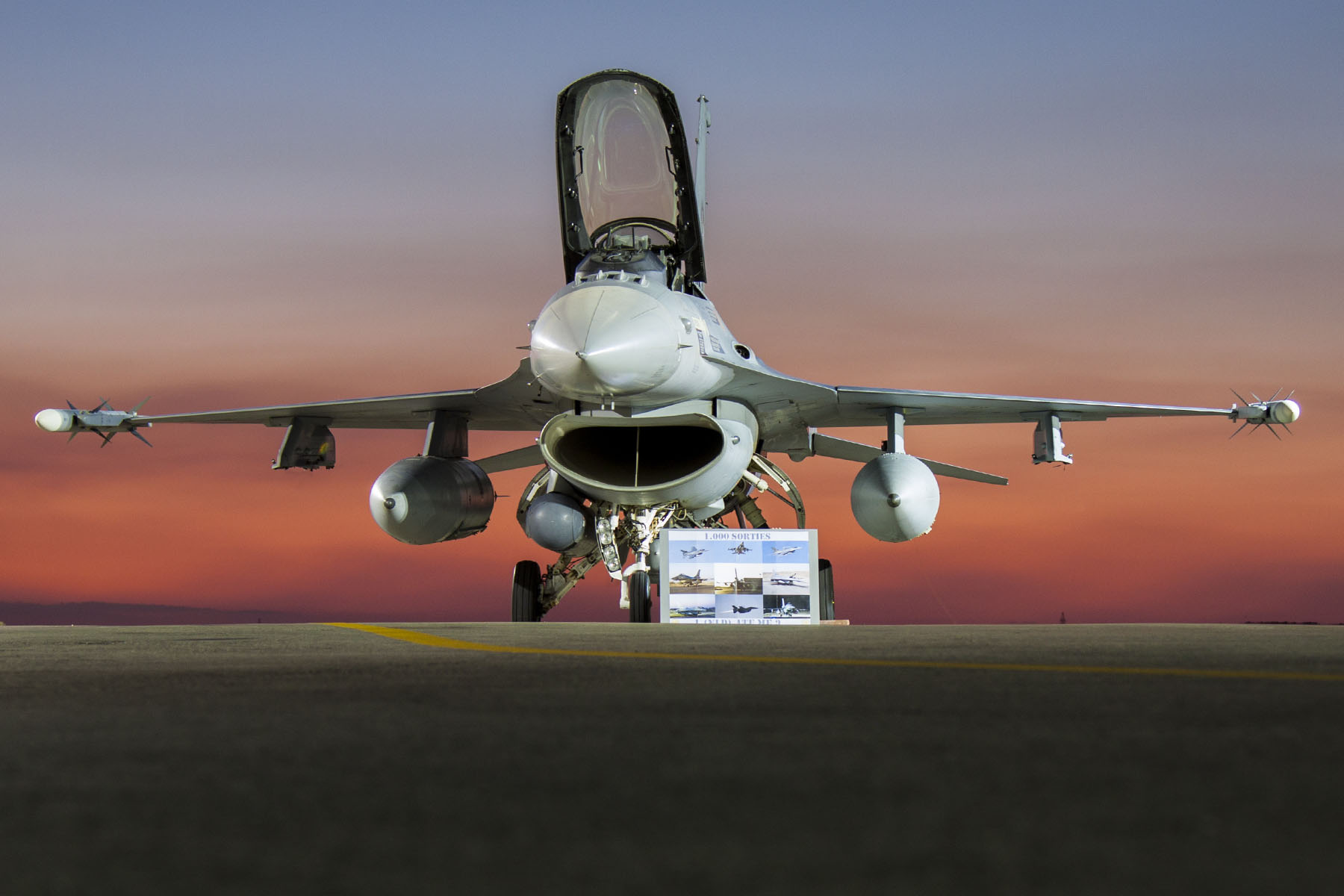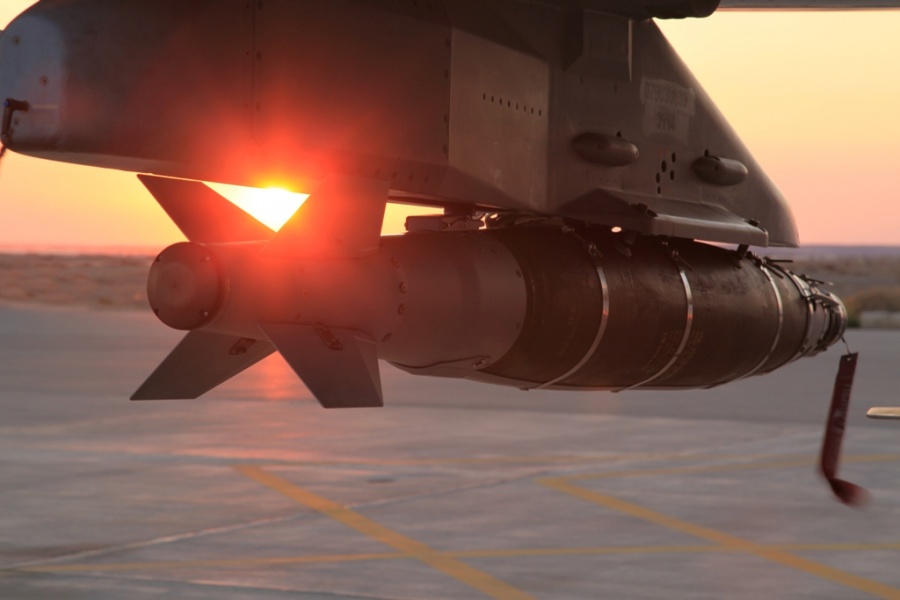ABOVE: A bomb-laden Belgian F-16 prepares for a mission in Iraq, December 2014 (Belgian MoD)
Major Developments
- Belgium announces it has ended its military role in the coalition, withdrawing its F-16s after approximately 41 airstrikes
- 13 fresh problem events are reported for June in both Iraq and Syria, involving multiple civilian deaths allegedly caused by coalition aircraft
- Airstrikes in Iraq alone now total over 3,000
- UK considers expanding its air war against Daesh to Syria, in the wake of a Tunisia massacre of 30 British civilians by the terror group
Civilian Casualties
- In Iraq, seven new incidents of concern were reported for June in which coalition aircraft may have killed civilians. Up to 81 people died in three events where coalition strikes were confirmed in the near vicinity, and where the publicly available evidence indicates a coalition role in the deaths.
A further 47 civilian fatalities were alleged by single sources only for three more incidents in Iraq, while one attack which killed up to 50 people at Huwija’s marketplace appears to have been the work of the Iraqi military.
In the most serious incident, as many as 70 civilians died when the coalition did bomb an IED factory at Huwija on June 3rd. Announcing a formal investigation into the mass killing three weeks later, a CENTCOM spokesman accepted that claims of civilian deaths in the attack were “credible.”
- In Syria, six new events led to multiple claims of coalition-inflicted civilian deaths for June. Between 16 and 34 people died in four attacks in which strikes by coalition aircraft were confirmed in the near vicinity. One further alleged strike is presently single-source only, while an attack at Kheshan which killed three may have been the work of the Assad regime.
In the most recent reported event for Syria, a 10-year old boy named as Mohmmad Ali Ahmad Al Assaf died with unnamed others when their car was struck near Tal Abyad on June 30th by an alleged coalition air strike.
https://twitter.com/raqqa_mcr/status/615941393278726145
ABOVE: Tweet by local activist describes June 30th death of 10 year old boy in alleged coalition airstrike
- The Syrian Observatory for Human Rights, a UK-based monitoring group, reports that 19,205 Assad regime air raids in Syria between January and June 2015 killed and injured some 30,000 people.
Military Actions
- During June 2015, the international coalition carried out 622 airstrikes, 407 of which targeted Daesh in Iraq, and 215 in Syria. After May and January 2015 (respectively 677 and 625 strikes), this represents the third most intense month of bombings since the beginning of the campaign in August 2014.
More than 3,000 airstrikes have now targeted Iraq alone since coalition operations began.
- Belgium appears to have caught some of its coalition partners by surprise this week, announcing on July 2nd that its military contribution to the coalition – Operation Desert Falcon – was officially over.
According to officials, Belgium’s six F-16 aircraft had released 141 bombs and missiles on Islamic State positions in Iraq since October 5th 2014 (approximately 40 airstrikes.) This represented the smallest contribution of any western military to the campaign.
Coalition officials were keen to downplay Belgium’s exit from the air war. One European military spokesman, speaking on background terms, told Airwars that financial pressures appeared to lie behind the Belgian government’s decision to withdraw its forces – and that there were hopes that Belgium’s aircraft might return to Iraq in 2016.
- Britain’s Prime Minister and Defense Secretary have both mooted the possibility of the UK expanding its attacks against Islamic State to targets inside Syria. The UK is already the second most active member of the international military coalition, responsible for around one in 10 of all airstrikes in Iraq.
Until now, the UK has been prevented from striking inside Syria following a parliamentary vote on September 26 2014. However, in the wake of a Daesh atrocity in Tunisia on June 26th which killed 38 people – 30 of them British – the ruling Conservative administration in the UK is keen to see the air war expanded.
A fresh parliamentary vote is not expected until September, by which time a new leader of the Labour Opposition will have been elected.

The Netherlands marked its 1,000th armed sortie against Islamic State forces in Iraq this week (Dutch MoD)
